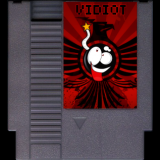Linear thinking
By vidiot 24 Comments
Notice: This is a long blog. Replies pointing out this fact will be ignored.
Linearity
From the word "linear", root word from Latin is "linearis". "Lin" comes from...uh...."Lindbergh"...
"Ear" comes from..."ear."..of course.
"ity" comes from "tits".
Actually, most of the words that I read come from the root word of "tits". I think. -_-

In this blog I try to tack the subject of linearity in general. It's as convoluted as it sounds.
This argument has been bouncing back and forth in my mind for the longest time. I don't really know exactly when I first began thinking about it, but a series of events both in the games I've recently been playing, and the ever-changing unpredictable curve of popular opinion has been shaping my outlook. Initially I was going to write this when I finished up Final Fantasy XIII, because that was the big argument that people were piling on in the web forums. What confused me initially was that such an exasperated argument was being made against Final Fantasy XIII. Think of the argument as a static statement: Final Fantasy XIII is bad because it's linear. How the hell does that even make any sense? Hasn't every Final Fantasy game since the series launched been in some form or another, linear?
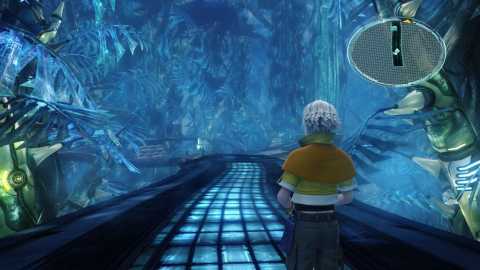
To start trying to come to terms with what tangible thing I can't immediately identify that I don't like about Final Fantasy XIII, I began thinking of linearity in gaming in general. Not just in how you fundamentally play the game, but how it's narrative is portrayed. My school of thought is whatever presentation standard that works the best for what your game is trying to portray, is what you used. I won't be trying to proclaim that one style is better than the other. Although in order to dive into this subject, I want to touch on western role-playing games here for a minute. Usually when such direct comparisons are made, people try and compare and contrast the games as a whole. That's not my intent, instead it's to illustrate a broader point.

Western RPG's have been trying to emulate the table-top experience of choice for the longest time. A good endeavor to accomplish, some of my favorite RPG's made by western developers are ones that bring choice hand-in-hand with the overall experience.
The choice is usually static.
Kill dude and be bad guy. Save dude and be good guy. A developer from Bioware has been quoted on stating that they are literally making two different games with each Mass Effect entry. It's true, as both my Mass Effect characters: 'Nick Shepard' and...uhm....'Bitch Shepard' can tell you.
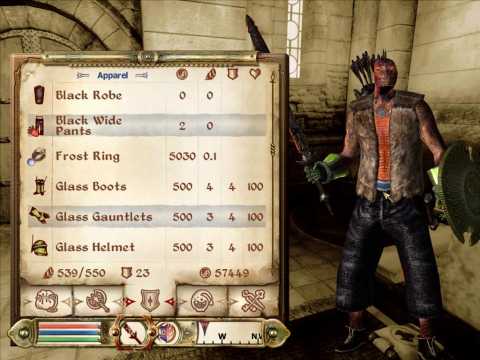
My character in Fallout 3 was another goody-two-shoes but had no personal relations of his own. He wasn't a character, he was an empty shell. Some people consider the silent protagonist a good opportunity to convey your own emotions onto your own character. Because your playing a role, because it's a role-playing game, and when we get on web forums and want to be obnoxious, the more times you emphasis the world "ROLE" into your argument helps. For example, that previous time I typed "role" I made it bold, capitalized AND is underlined. No, I will not look at the other billion legitimate factors that go into trying to define what it means to "ROLE-PLAY" these days.
Whatever. I personally find the silent protagonist kinda antiquated at this point. Personal opinion, disagree if you must.
This goddamn thing has a point, please stay with me. :P
It's gotten better though. Mass Effect seems like a mix between the conventional linear style and player choices. No choice is technically your choice, as the player essentially shepards (PUN!!!!) the main character down two distinctive plots. Of course you can mix-and-match for different situations, but the general outcomes have been predetermined.
You think it's your own choice though, but it's not. You think you have a say with what the outcome will be, but you really don't.
It's all an illusion.
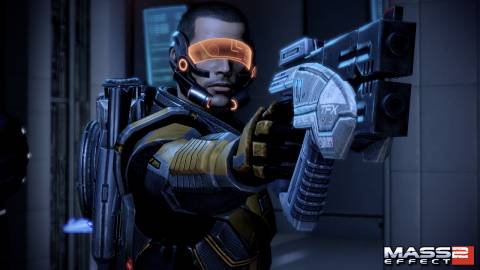

Resonance of Fate is Final Fantasy XIII's arch-nemesis.
I've haven't seen two distinctively different games that proclaim they are from the same genre, let alone the JRPG sub-genre.
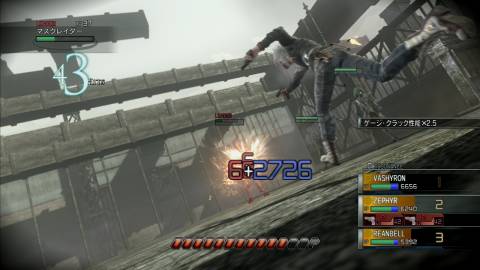
In this case it's the "illusion of interactivity". It's a balancing act for sure, how much should you lead the player versus how much you shouldn't. Resonance of Fate has a linear main plot, but the abundance of side-missions to take give the game not just extra padding in the longevity department, but gives the player a sense of self controlled progress. It's nothing new, most JRPG's and RPG's in general, follow the same design of RoF. Again variables abound over what gives the best illusion, but general pacing can be an easy example to site. Giving the player the time to collect his thoughts, to take a break from the traditional grind of your main mechanics.
This is the part where I cite towns, but it's much more than that. It's a lack of any downtime outside of cut-scenes or battles. A lack of depth in the world that I'm running through.
In interviews up to XIII's release, the developers like to cite Modern Warfare as a form of inspiration. I really hated this comparison, but let's run for it for a little bit. In a game like Modern Warfare, we can spend most of the time in high-stress scenarios, it's only eight hours. A lot of conversations I've had with people have had many reoccurring dilemmas with XIII, one that I found interesting is that people got tired of it. I would be lying to say that I didn't felt fatigue going through the endless corridors and difficult battles of XIII to the thirty hour point. Getting to Nautilus so far has been my favorite part of the game, because I was able to take a breather.
At the same time, this linear design for dungeons is not a bad idea. I knew a guy who used to work for the Nintendo help line. One of my favorite stories, was how he had to help a kid on the phone get through the Phoenix Cave in Final Fantasy VI....ON THE PHONE.....IN IT'S ENTIRETY.....ROOM BY ROOM....
I think the idea of a linear dungeon crawl isn't necessarily a bad thing. I've always found JRPG dungeon design....weird....If there's something that should be stripped down,
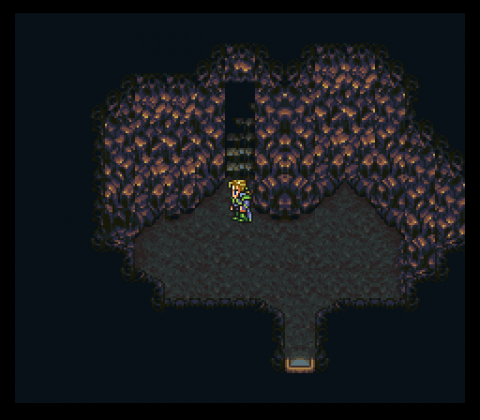
It also doesn't help that there is a right and a wrong way to do linear dungeon design, and it's not until the end of XIII's initial long march that we get something that works. Again, the developers actually cited shooters as an example for their supposed linear design choices, it's just too bad that linear shooters play with this illusion of interactivity within their set-pieces.
Our favorite games that we play are linear. Even the ones that we consider to be non-linear have strong linear components. It's the illusion we should be striving for. The illusion we should be commending.

Unlike other forms of medium, games are interactive so we try and figure out how much that interactivity should be implemented. It's the defining quality, but I think we get too sucked in with this idea that you should "be in control how much your character breathes." A loss of creative vision or coherency can sometimes be derived with this idea that games should be more sim, versus an entertainment experience. Yet in the grand scheme of things there's not really a big difference between a linear static cutscene, versus choosing what linear static cutscene to watch. Or choosing whether or not deciding to wander to another linear path, before diving head-long into the next main linear scenario. It's a balancing act, and there's no real distinctive all-encompassing way of implementing the illusion across all games.
In the end Final Fantasy XIII simply fails at the illusion. It's a great game for sure, and if you read this blog and think I'm just bashing the game, my apologies that's not my intent. It's just missing key basic components that we have come to expect, not just from games in the series but most games in general.
To argue though that the reason XIII fails at immersion because of it's linearity, is not the argument we should be making.
We need linearity. Because without linearity, with completely pure non-linear game play, we for better or worse run the risk of producing chaos. For those of you who want any example for this, here is a pic from a session I had with Sleepy_Insomniac playing Sleep is Death. The game is played by two players, one who plays it like an adventure game, the other player literally makes the game between turns. It's the closest thing I've seen to actual genuine DM'ing in a computer game.
In this session I was creating the game while Sleepy played the game.
Then this happened:

...
...Yeah....
